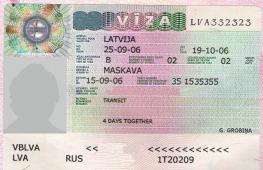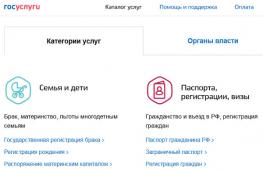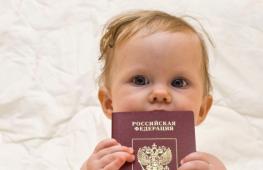Permanent residence - what is it: registration of permanent residence in Russia
The Russian Federation is a multinational country with endless possibilities and potential. People want to move there for permanent residence from different parts of the world. Permanent residence provides superiority and privileges over, for example, a temporary residence permit. To understand what permanent residence is, to clarify the nuances, it is better to seek legal advice, but this can be done on your own.
What is permanent residence
The abbreviation for permanent residence is an abbreviation for the expression "permanent residence". With this status, you can live in the country for an unlimited time. Migrants with permanent residence status have the same rights as citizens of the state they came to, with a few exceptions:
- They are not allowed to work in government and, sometimes, military service.
- Migrants do not have the right to vote and be elected to elected office.
Documents confirming the existence of permanent residence status give migrants more opportunities than a residence permit (residence permit) or temporary residence permit (TRP). Permanent residence status is the last step on the way to obtaining citizenship, and therefore implies that a foreigner is counting on broad preferences, that is, receiving state benefits and providing a special tax regime.
Permanent residence in Russia
Leaving for permanent residence in Russia is a difficult step-by-step process. Certain categories of foreigners have every reason to obtain citizenship according to a simplified procedure - faster and easier:
- Russian-speaking foreigners and persons who emigrated from the USSR;
- people who have worked in Russia under an employment contract for more than three years;
- disabled foreigners or those with adult children - citizens of the Russian Federation;
- veterans of the Great Patriotic War, refugees;
- persons who received Russian education in universities or vocational schools;
- persons who have been married to a citizen of the Russian Federation for more than three years and live in the territory of the Russian Federation.
The main advantage is the period of verification of documents, which is reduced to 3 months (for citizens of Kazakhstan, Belarus, Kyrgyzstan) and 6 months (for all others). Otherwise, the applicant receives citizenship on a general basis. He must legally cross the border of the Russian Federation, apply for a temporary residence permit, and then - for a residence permit. According to the general scheme for obtaining Russian citizenship, the consideration of papers can take up to 1 year.
The concepts of permanent residence, temporary residence permit and residence permit are often confused. Permanent residence of foreigners in Russia is the fact of residence in the territory of the state, and temporary residence permit and residence permit are the ways of its legalization. The RVP legitimizes the stay in Russia for three years, binds the migrant to a certain constituent entity of the Russian Federation, provides the advantage of working without a patent and submitting papers to obtain the subsequent status - residence permit. A residence permit is a document that allows a migrant to stay in a foreign country for a long time.
What status gives
Moving to permanent residence means obtaining a status that gives access to all the rights and freedoms inherent in the citizens of the Russian Federation. A foreigner living for permanent residence in the Russian Federation can:
- stay for an unlimited amount of time on the territory of the state, without thinking about extending the residence permit and temporary residence permit;
- cross the border of the Russian Federation without thinking about such a moment as the residency qualification;
- receive free education, pension services, medical services;
- start your own business and get a loan.
Advantages and disadvantages
The positive aspect of the permanent residence status is the preservation of the passport of the native state, because it is not required to renounce the original citizenship. For a foreigner, having permanent residence opens up access to all the privileges of Russian citizenship: there is no need to renew visas, apply for labor patents, employment is permissible in every region of Russia. Such persons have the right to enjoy the benefits and social benefits that Russians have.
In addition to the advantages of the permanent residence status, there are also disadvantages. Problems with employment and housing are likely, taxes are required, service in the Ministry of Internal Affairs and the FSB will be limited, and it is not allowed to participate in elections. At the same time, you will have to observe the laws of the country, honor the traditions, the way of life of Russians. The most negative point is that it is necessary to report annually to the Ministry of Internal Affairs about the place of residence.
Permanent residence address
An important point in acquiring permanent residence status is the address of permanent residence. To register it, the receiving party submits an application and copies of a person's passports, a migration card, an act of renting a living space to the police department of the Ministry of Internal Affairs. After registration at the place of residence, a foreign citizen will receive an address of permanent residence. If there is no permanent residence, this factor can bring a negative impact. Living without registration is a violation of the legislation of the Russian Federation, and you will have to answer for this to the fullest extent of the law.
The application for obtaining a temporary registration must contain the address of temporary registration - personal housing, home of relatives or comrades, apartment rent, hotel, etc. The period of temporary registration is equal to the duration of the temporary registration. Corresponding quotas have been allocated for all regions of the Russian Federation. If the quota is exhausted, then the apartment is offered in other regions. For participants in the State Program, housing is provided in appropriate places.
Another way to obtain permanent residence is individual housing construction (IZHS). This is a type of living space based on personal property rights. The building is being built at the expense of the personal funds of the owner of the land, but there are certain restrictions: the number of floors in the house should be no more than three, no more than one family can live in the building. The advantage of a plot for individual housing construction is that neither Russian citizenship, nor a residence permit, nor a temporary residence permit are needed, you only need to legally stay in the Russian Federation.

Methods for obtaining permanent residence
The immigration procedure is not easy, it is carried out in stages and requires that all documents be translated into Russian and notarized. Be sure to make sure that you are not prohibited from leaving the country because of debt on loans, alimony, housing and communal services. This can be done using special Internet services. There are five options for moving to Russia for permanent residence:
| Method of obtaining permanent residence | Peculiarities | The documents |
| Obtaining temporary asylum (relevant for residents of Ukraine) | The applicant receives a temporary certificate, which will be the main document on the territory of the Russian Federation. The status is valid for 1 year, but then it is extended until it becomes possible to return to the home country. People who have received temporary asylum have the right to use free medicine and work legally. |
|
| Taking part in the State Resettlement Program (suitable for foreigners who emigrated from the USSR to another Russian-speaking state) | The documents of the program participant for obtaining a residence permit are considered up to 2 months, which is faster than the general method, but the specified program operates in a limited territory of the Russian Federation, for example, the Moscow region does not participate. On a positive note, for citizens participating in the State Program for the Resettlement of Compatriots, benefits are provided that allow them to transport personal property without paying taxes. |
|
| Obtaining refugee status (suitable for persons who are persecuted in their country by the authorities) | A Russian passport is not issued with this method. The status is retained for the migrant for up to three years, then, if desired, it will be extended. Citizenship is possible after 4 years of residence in the country. Social guarantees are available for this status: treatment in state polyclinics, employment, free education for a child. |
|
| Obtaining citizenship under a simplified scheme | The applicant applies to the Federal Migration Service (FMS) with all documents and copies. Then, within 6 months (3 months for citizens of Kazakhstan, Belarus, Kyrgyzstan), documents are checked and a decision is made to obtain Russian citizenship. |
|
| Obtaining citizenship in the standard form after 5 years of residence in Russia. | Upon arrival, foreigners fill out a migration card. Then, within 7 days, you must register for migration by contacting the federal migration service. An exception has been made for citizens of some states (Ukrainians - 90 days, citizens from Kazakhstan, Armenia, Kyrgyzstan, Belarus - 30 days). After 12 months after receiving the TRP, it is possible to issue a residence permit. It is issued for a period of 5 years, then extended. Since the residence permit is Russian, a foreigner remains a citizen of his native country, but has rights and social guarantees similar to those of Russians. After 5 years of living in Russia with a residence permit, a foreigner has the right to apply in order to obtain Russian citizenship. |
|




